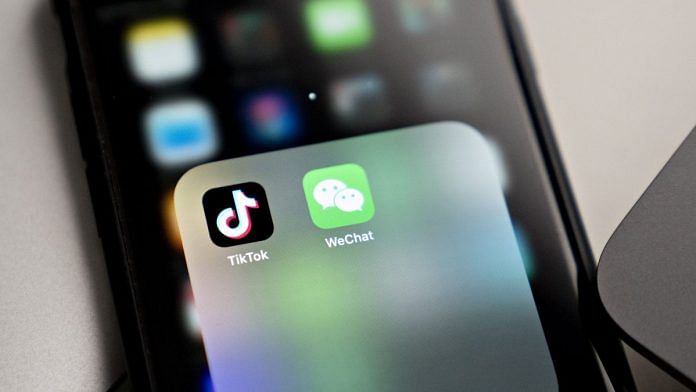Bloomberg: The Trump administration is debating the scope and effective date of its bans on Chinese social media apps WeChat and TikTok and will make its decisions public later this month, according to people familiar with the matter.
The Commerce Department, which will implement the bans on national security grounds, is drafting documents to clarify the specific transactions that will be prohibited between the Chinese companies and U.S. businesses — and when those prohibitions will take effect, the people said.
The decisions will be made public in the Federal Register around Sept. 20, said one of the people close to the discussions who asked not to be named because the deliberations are private. It’s not clear whether the bans will go into effect upon that publication, or whether there will be a transition period to give companies time to comply.
Details on how the ban on Tencent Holdings Ltd.’s WeChat will work are key to the bottom line of U.S. companies that do business with the Chinese firm. At stake is whether the restrictions, which President Donald Trump first announced on Aug. 6, will apply just to U.S. transactions or also extend to operations globally, which could cut into sales across a wide swath of American business.
The Sept. 20 date comes at the end of the 45-day timeframe laid out in that initial order.
While some U.S. officials have signaled to the business community that their China operations won’t be impacted, Bloomberg has reported that there are conflicting views between members of Trump’s cabinet and the final outcome isn’t certain.
Also read: US-China tensions enter American courtroom as TikTok sues Trump over ban
Transition period
Companies have been pressing the administration to clarify whether they will be granted a transition period before the ban takes effect or if a Sept. 20 announcement becomes effective immediately.
The ban’s scope and timeline are connected, according to one of the people. For example, if the administration were to apply the restrictions broadly to any Tencent dealings, including its games, companies would have a longer period to comply. If the ban is narrow, companies may get less time or no transition period at all, the person said.
Ultimately, the final decision on whether to extend the ban outside the U.S. lies with Trump, according to the people familiar. A Commerce Department official said the agency doesn’t comment on internal deliberations.
Company reaction
The administration is taking into account feedback from companies and aims to craft clear guidance to avoid unintended consequences, one of the people said.
If the order applies to American companies operating in China and American citizens there in addition to transactions in the U.S., it will hinder the competitiveness of U.S. firms and their ability to communicate in China, according to an Aug. 26 member survey by the American Chamber of Commerce in Shanghai.
Almost half of the member firms that participated said they’d see lower revenues and 11.3% of them predicted the declines would be greater than 30%.
Separately, Trump has directed TikTok owner ByteDance Ltd. to spin off its U.S. operations by mid-September to avoid being banned in the U.S. ByteDance is reviewing bids from American firms, including Oracle Corp. and Microsoft Corp., which has teamed up with Walmart Inc. Any sale has to satisfy the Trump administration’s national security concerns, including around data collection and privacy.
The president has the option not to impose a ban on Sept. 20 if TikTok addresses the national security risks outlined in the initial executive order, one person said, which could include selling its U.S. operations to an approved buyer.
White House trade adviser Peter Navarro this week reiterated both apps were national security threats and said “there will be others” the administration will go after.
On conference calls with large U.S. technology companies last week, Robert Blair, who is leading the interagency effort for Commerce, listened to their concerns about the order’s scope, but declined to provide details, people familiar with the discussions said.
Blair, who served as special representative for international telecommunications policy in the White House before moving to the Commerce Department in April, also said on the call with companies that he couldn’t comment on whether there would be a transition period, they said.
Also read: Why US and China should seek a truce in their tech Cold War



